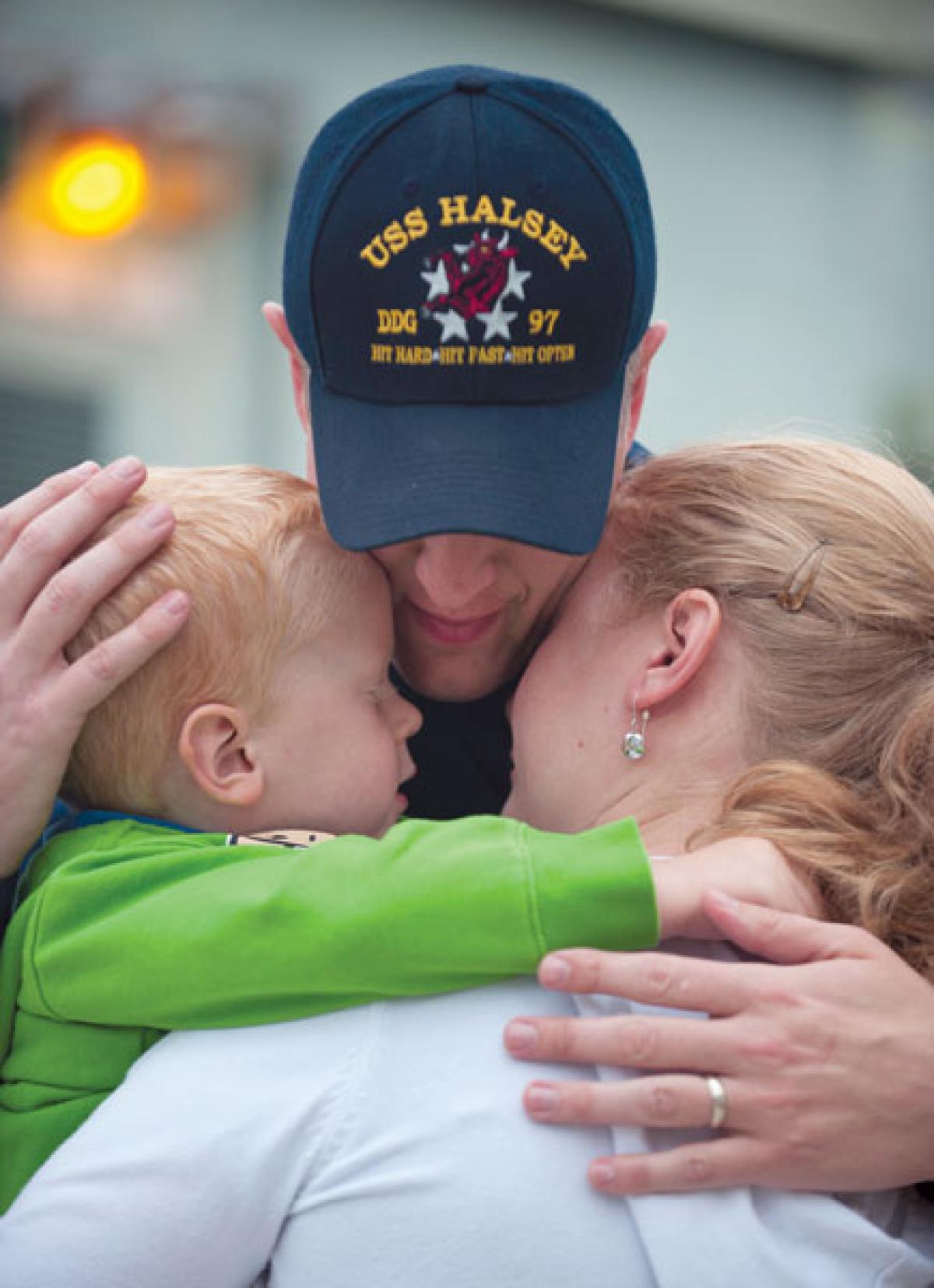In October 2010, this column examined “Retirement Benefits in Perspective.” It seems appropriate to consider active-duty pay and benefits similarly.
The Defense Business Board looks at numbers only when making recommendations about how veterans should be compensated in retirement, and is likely to take a similar approach to active-duty compensation. Here are some suggestions the board, and members of Congress, should consider for a more people-oriented approach:
Follow an E-3 single parent home from work and help him prepare dinner. Pay close attention to the quality and quantity of food in his pantry and then consider whether he is making too much.
Go to the grocery store with an E-4 and imagine her embarrassment as she makes her purchase with food stamps. She may, even in uniform, have to separate her milk, cheese, and baby formula to make sure she gets those items with Women, Infants, and Children coupons.
Talk to a single-parent sailor of nearly any pay grade about how difficult it is to find safe, affordable, and dependable child care so he can stand a cold, lonely watch in the middle of the night.
Spend time with a husband or wife whose spouse is deployed thousands of miles away in a war zone or at sea. Help that spouse do the job of two parents while reassuring the kids that Mommy or Daddy will be all right, will come back safely, and is just doing her or his job, all the while hiding fears of what the future might hold.
Follow many service members to their car after work and watch as they struggle to get it started, knowing that payday—getting it fixed—is still a week away. Revel in the esprit de corps when a shipmate, fellow Marine, or senior leader comes to their aid. Watch closely, it might just be a veteran or retiree still caring for an anonymous comrade-in-arms.
Follow a sailor who just lost a close family member as he hurriedly goes to one of the service relief centers to get a loan so he can fly home to be present at a funeral and attend to grieving family.
Watch a Navy chief counsel a sailor on his finances, and then walk with the chief to the base chapel as she signs up that sailor’s family for a free meal on Thanksgiving. She’ll also place the names of his children on the Angel Tree, confident that a shipmate will donate gifts to an anonymous child to make sure they have a memorable holiday.
Spend a day at a military hospital with a wounded warrior struggling to learn to walk with a prosthetic leg (or two) while also worrying about his family back home and his buddies still deployed. You may feel guilt, but don’t let your own emotions obscure his message about how dearly he wants to get back to his unit, his friends, and the fight. Don’t pity him, be amazed by him.
Those who think military compensation is too generous should spend some time with the recipients of those payments. Watch as far too many struggle with day-to-day expenses. Witness their fear as an emergency puts them on the brink of poverty, or as they struggle with the decision of paying a bill or buying food. Take a close look at the worry on their faces when they leave their families for a day or a year, but watch also for the pride they have in their work because they know their duty has a purpose. Understand that they serve not just for themselves but for the family they leave behind and for their fellow countrymen.
Anyone with a hand in military compensation must look at those benefits in perspective, not only by the numbers. Consider for a second your own financial position before telling struggling military professionals that their compensation is too high. They don’t all struggle, but far too many of our junior personnel do. They continue to serve because they love what they do, they’re professional, they’re patriotic, and they cherish the bonds built through military service.
Many would serve for far less. They shouldn’t have to, nor should they have to worry that they might be asked to do so.



